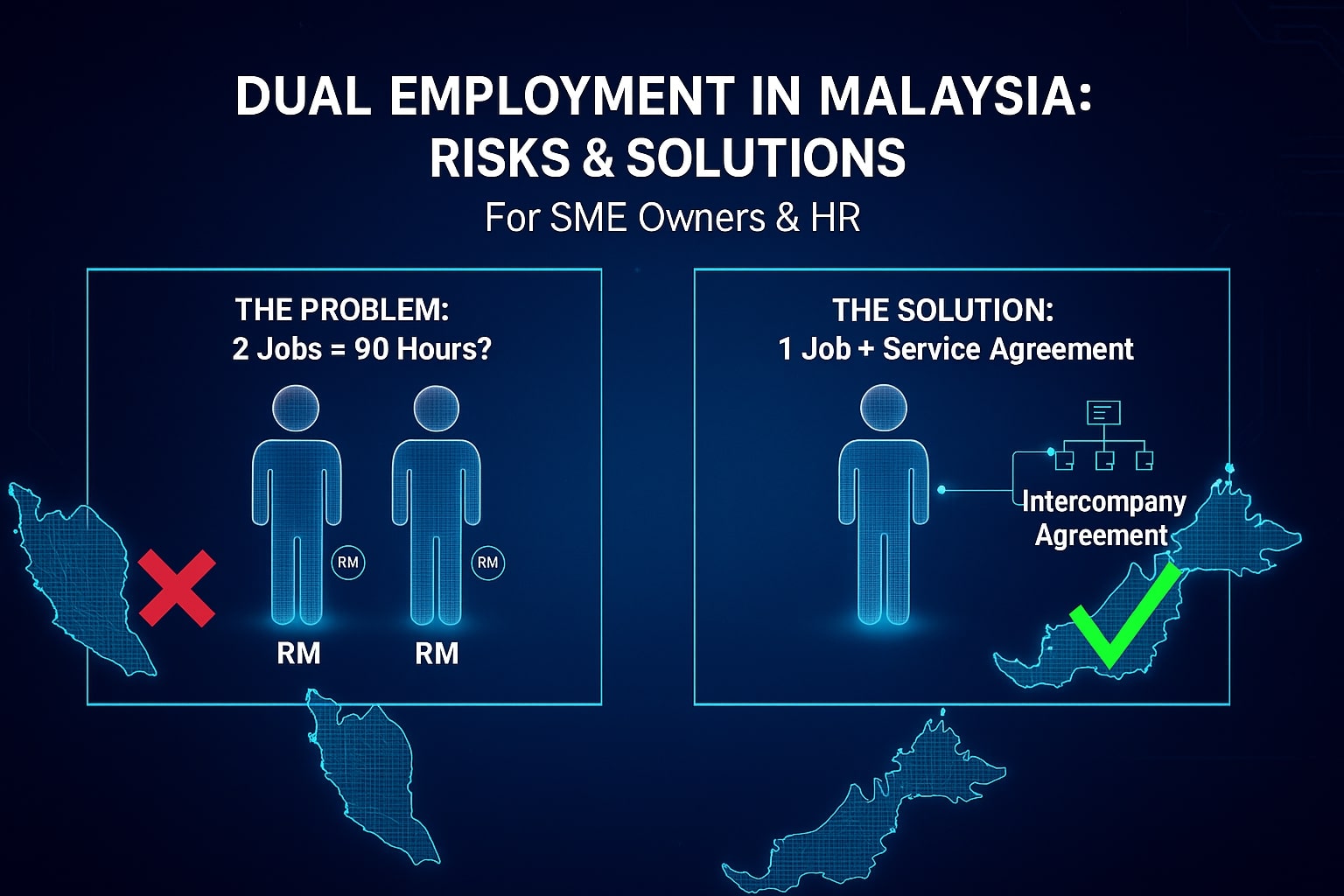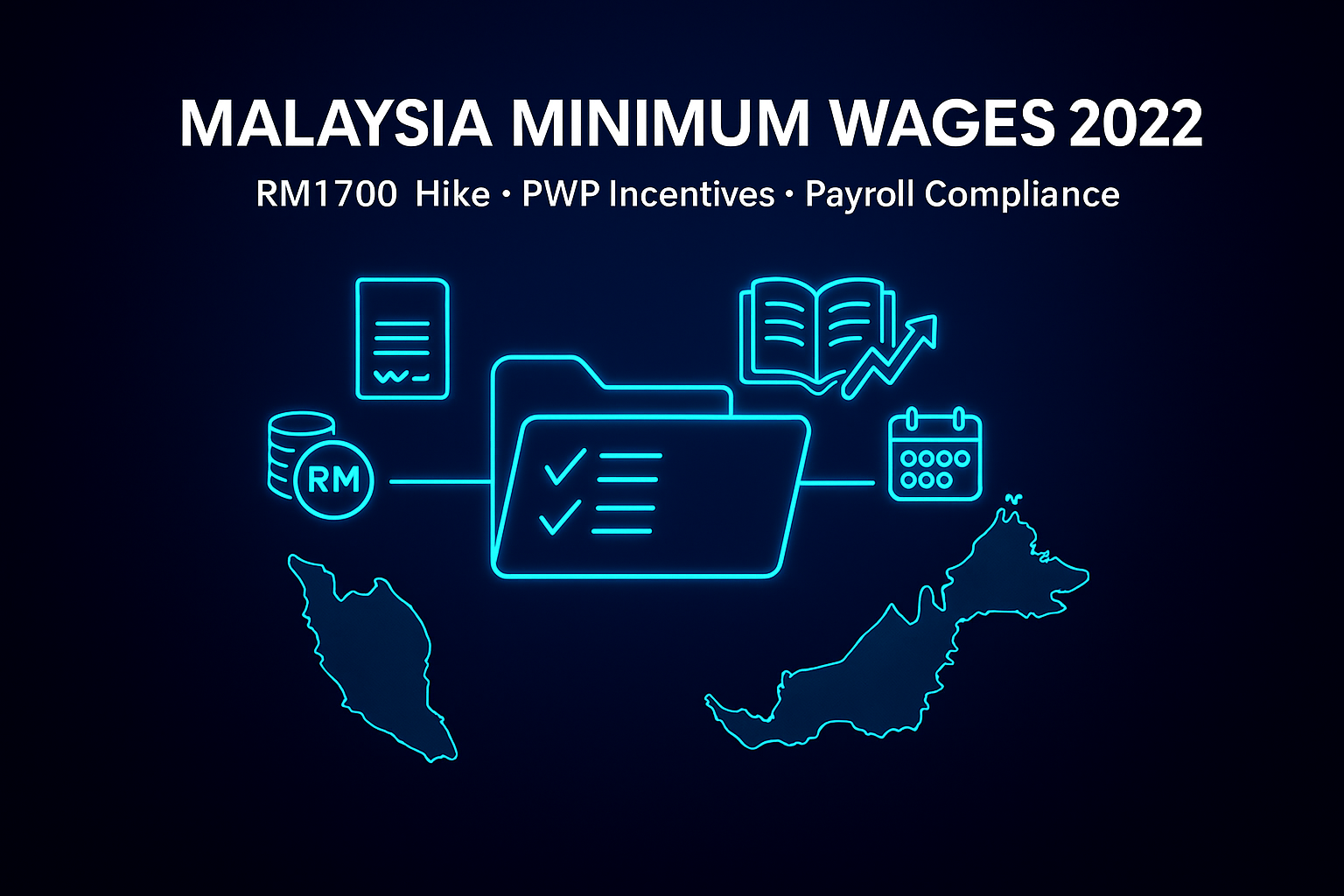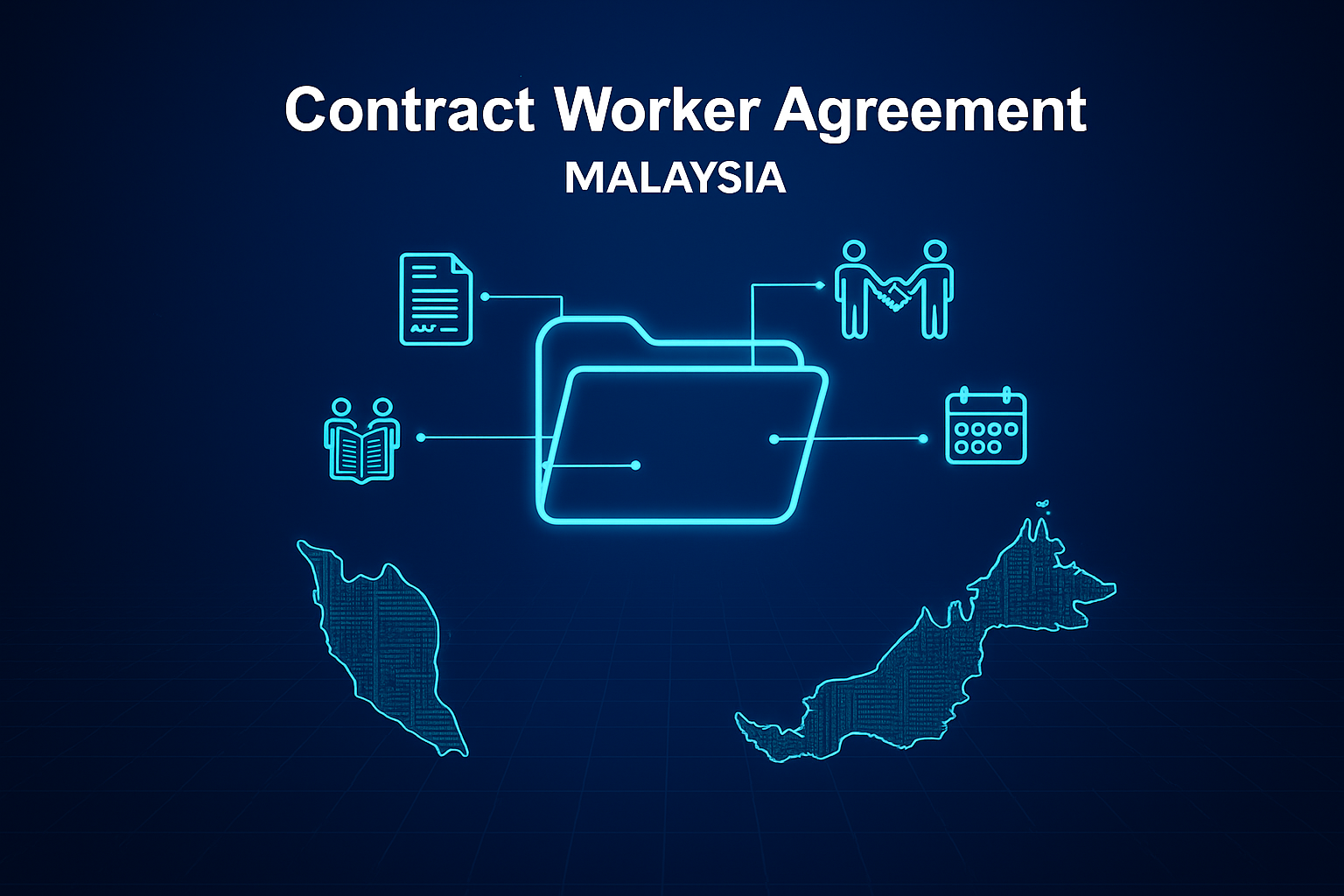Can an Employee Have Two Full-Time Jobs in Malaysia? A Practical Guide for SME Owners & HR
Learn about the risks and challenges of holding two full-time jobs in Malaysia. We explore the legal implications, tax issues, and compliance concerns that could affect both employees and employers. Find out how to navigate this complex situation with practical insights and solutions for businesses.

Introduction: A Common SME Challenge
As an SME business owner or HR professional managing multiple companies under the same ownership, you often need your best people to work across different entities. A tempting solution is to hire one key person for two full-time jobs—giving them two employment contracts and splitting their salary between, for example, Company A (RM7,000) and Company B (RM3,000).
While this seems straightforward, this “dual employment” arrangement is a legal and administrative minefield under Malaysian law. This guide breaks down the risks and provides a simple, compliant solution for your business.

1. Is This Arrangement Even Legal? The Hard Truth
The short answer is: It is very risky and often illegal in practice.
While no law explicitly says “one person cannot have two jobs,” the Employment Act 1955 creates major hurdles:
- The Biggest Problem: Working Hours. Section 60A of the law states that an employee cannot work more than 45 hours per week. Two full-time jobs clearly imply an 90-hour (or more) work week, making this a direct breach of the Act.
- Conflict of Interest: The employee's duties for Company A must not conflict with their duties for Company B.
- "Sham Arrangement" Risk: Since your companies share directors, the Labour Department or LHDN may see this as one job disguised as two to avoid legal responsibilities. This can lead to penalties and back-payments.
Special Case: What About Director Positions?
It is more common for a person to be a Director in two different companies. A directorship is governed by the Companies Act 2016 and is seen as an office, not just employment.
- The Catch: This is safer if the role is purely at the board level (attending meetings, providing governance). However, if the Director is also performing day-to-day full-time executive duties (e.g., as a full-time Operations Director), the working hour conflict returns, and the risks of dual employment apply.

2. The Compliance Nightmare for Your HR & Payroll
Managing one person on two payrolls is a complex and error-prone task.
- EPF, SOCSO & EIS: You must register the employee under two different company accounts. You need to calculate and contribute based on each salary (RM7,000 and RM3,000) separately. This is double the work and can lead to mistakes in reporting.
- Tax (PCB) - The Highest Risk: This is where SMEs get into serious trouble.
Monthly PCB
Company A deducts PCB based on the RM7,000 salary, and Company B based on RM3,000. This places the employee in a lower tax bracket for each deduction, reducing the monthly PCB paid.
Year-End Tax Filing
The employee will get two EA Forms. They must combine both incomes (RM10,000) to file their personal tax.
LHDN Will Investigate
The Inland Revenue Board (LHDN) will see that the total PCB deducted monthly was too low for the total annual income. The employee will owe a large tax balance at year-end, plus potential penalties. LHDN may also fine the companies for incorrect PCB deductions.
If you’re juggling multiple jobs and need to stay compliant with Malaysian employment and payroll regulations, check out our guide to Statutory Payroll Reporting in Malaysia.
3. The Safe & Compliant Alternative for Your SME
You can achieve your goal without the legal risks. The professional and widely accepted method is to use a Single Employer Model with an Intercompany Agreement.
Here’s the simple, 3-step solution:
- 1. Hire Under One Company: Employ the individual under one primary company (e.g., Company A) with a single employment contract. Their full salary (RM10,000) is paid from this one payroll.
- 2. Create an Intercompany Service Agreement: Company A and Company B sign a formal agreement. This agreement states that Company B will reimburse Company A for the portion of the employee's time and services used (the RM3,000).
- 3. Handle Directorships Separately: If the person is also a Director of Company B, issue a separate Director's Appointment Letter and pay a Director’s Fee separately. This keeps the roles legally distinct.
Why This is the Better Way:
- Stays Compliant: You avoid breaking working hour laws and simplify EPF, SOCSO, EIS, and PCB under one employer.
- Saves HR Time: One payroll, one set of statutory contributions. Fewer errors, less admin work.
- Easy to Manage: When Company B no longer needs the support, you simply stop the service agreement. The employee’s job with Company A continues without any messy "termination" from a second employer.
For workers under contract or part-time arrangements, our Contract Worker Agreement in Malaysia guide explains your rights and responsibilities in detail.
Conclusion: Keep It Simple and Compliant
As an SME owner or HR manager, your focus is on growth and efficiency. The “two full-time jobs” model creates unnecessary risk and complexity.
The best practice is to employ the person once and use a formal Intercompany Service Agreement for cost-sharing. This approach is legally sound, administratively simple, and protects your business from penalties from LHDN, EPF, and the Labour Department.
Disclaimer:
This blog post is provided for general informational purposes only and does not constitute legal, tax or employment advice. While we have made every effort to ensure accuracy at the time of writing, laws, regulations or employer obligations may change or vary by situation. Employers and employees should consult a qualified employment-law adviser or tax professional to determine how having two full-time jobs may apply in their specific circumstances. Use of our payroll or accounting software does not guarantee compliance — it can help you monitor and automate processes, but your compliance remains your responsibility.
Manage Payroll and HR Compliance with AutoCount's Payroll Solution
Avoid costly errors in PCB, EPF, and HR records with AutoCount’s integrated accounting and payroll system.



